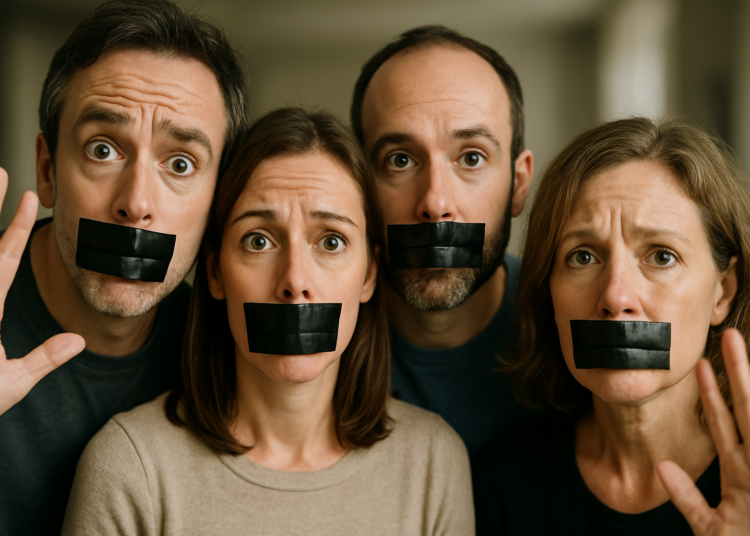We grow up learning that silence is polite, even noble. But there’s a difference between being thoughtful with your words and muzzling yourself into invisibility. In matters of abuse, addiction, or deep personal struggle, silence doesn’t just protect others—it can slowly destroy you from the inside.
That kind of truth-telling comes with risk, but the alternative is far worse: becoming complicit in your own erasure. When we convince ourselves that holding back is keeping the peace, we’re often just postponing a storm that will eventually break.
The Burden of Keeping Quiet
I’ve lived through moments where keeping quiet was framed as loyalty. In reality, it was surrender. Family secrets, hidden abuse, and unspoken wounds allow harm to seep deeper into the foundation until the whole structure is unstable.
Silence is a false comfort. It gives the illusion of stability while letting harm fester. And when the truth finally does come out, it’s almost always more painful than if it had been faced head-on from the beginning.
The Messy Work of Speaking Up
Finding your voice after years of silence is not a graceful process—it’s loud, messy, and rarely well-received by those invested in your quiet. But speaking up, even in the smallest ways, changes something in you. The air feels lighter. The weight begins to shift.
Your voice is not just for defense; it’s for definition. It tells the world who you are and what you stand for. Without it, you leave the story of your life in someone else’s hands—and they may not tell it with your best interests at heart.
The Truth About Who Stays
Silence can be a temporary tool for reflection or self-defense, but when it becomes your permanent response to injustice, cruelty, or dishonesty, it’s no longer protection—it’s submission. If you’ve been holding your voice back for fear of the consequences, remember this: the people who truly belong in your life will honor the sound of your truth.
The rest were only ever comfortable with you when you were silent.























































































